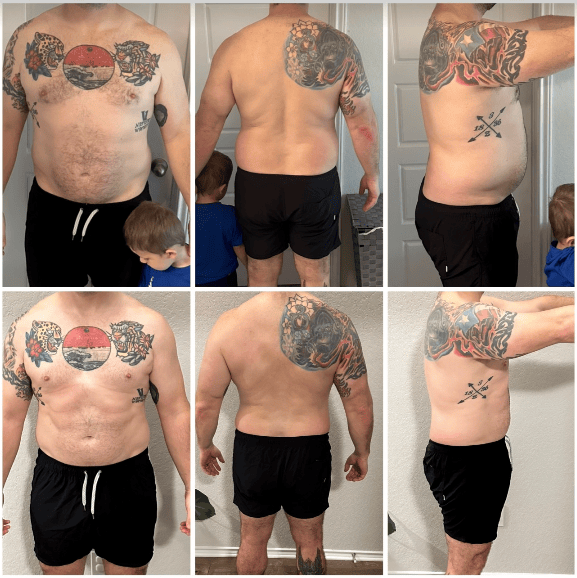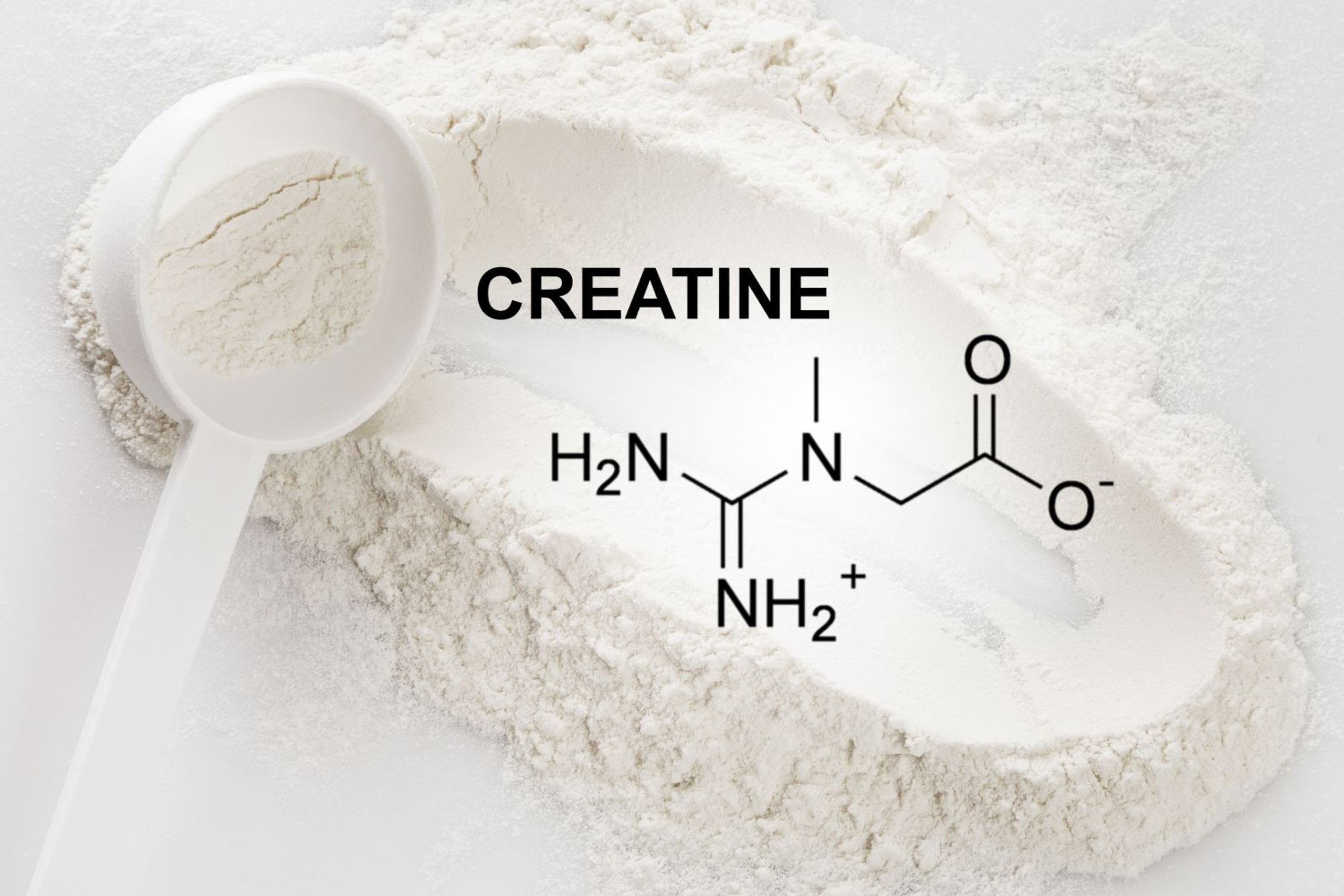Navigating the world of supplements can sometimes feel like deciphering a secret code, especially when it comes to one of the most talked-about topics in the gym: creatine. With opinions flying left and right about when to take it for maximum gains, it's easy to feel lost in a sea of advice.
But what if we told you that understanding creatine isn't just about timing? It's about unlocking the potential to supercharge your workouts and sculpt the physique you've been working towards.
Let's dive into the nitty-gritty of creatine, stripping away the myths and focusing on what truly matters for your muscle-building journey.
What Is Creatine?
Creatine is a powerhouse in the world of fitness supplements, but what exactly is it? At its core, creatine is a naturally occurring amino acid found in your muscle cells. It plays a crucial role in energy production, particularly during short bursts of high-intensity exercise.
Here's a closer look at the most popular forms creatine comes in:
Creatine Monohydrate
If creatine were a character in a superhero movie, Creatine Monohydrate would be the reliable sidekick who always has your back. It's the OG form of creatine, well-studied and trusted by gym buffs worldwide.
This version is known for its high bioavailability, making it easier for your body to absorb and utilize during intense training sessions.
Creatine HCL (Hydrochloride)
Imagine if creatine went through a high-intensity training montage and emerged as Creatine HCL — leaner, meaner, and more potent. This form of creatine boasts improved solubility and absorption, allowing you to get more bang for your buck with lower doses.
Creatine Ethyl Ester
Picture creatine slipping on a sleek power suit and transforming into Creatine Ethyl Ester, the suave and sophisticated variation of this supplement. While it was once hailed for its enhanced absorption properties, recent studies have cast doubts on its effectiveness compared to other forms.
Buffered Creatine
Think of Buffered Creatine as the zen master of the creatine world, bringing peace and balance to your muscle-boosting endeavors. This variant is less likely to cause stomach discomfort, making it a popular choice for those sensitive to regular creatine monohydrate.
What Are the Benefits of Taking Creatine?
When it comes to the perks of popping this coveted supplement, the list is as impressive as a well-stocked buffet at a bodybuilder's banquet.
Here's why creatine is a staple on the menu for those looking to level up their fitness game:
Supercharged Strength
Like a turbo boost in a video game, creatine gives you that extra push to lift heavier weights, making it a favorite among weightlifters aiming to build muscle and increase their strength. This boost in muscle strength is not just about looking good but feeling powerful and capable, whether you're flipping tires or opening tight jars.
High-Octane Energy
Creatine plays a pivotal role in how your body produces energy during high-intensity exercise. It helps regenerate ATP (adenosine triphosphate), your muscles' primary energy source, allowing for longer, more explosive workouts. Imagine your energy bar getting a quick refill, letting you sprint, jump, and lift with vigor.
Accelerated Muscle Growth
For those dreaming of muscle mass that's as impressive as a Greek god's, creatine can be your nectar. It supports muscle growth by hydrating muscle cells, increasing their volume, and, over time, contributing to greater muscle fiber size.
Enhanced Recovery
Post-workout aches can throw a wrench in your routine, but creatine comes to the rescue by speeding up muscle recovery. You can bounce back faster, reducing downtime and making every gym session count. It's like hitting the reset button on your muscles, readying them for another round of action.
Boosted Brain Power
Though lesser-known, the benefits of creatine aren't confined to your muscles. It also lends a helping hand to your brain, enhancing cognitive functions, especially under conditions of stress or sleep deprivation. So, not only does it help your body perform better, but it also keeps your mind sharp.
Support for High-Intensity Workouts
Creatine is particularly beneficial for activities that require sudden bursts of energy, like sprinting, jumping, or heavy lifting. It enhances your performance in these high-intensity intervals, ensuring that your muscles are ready to deliver when you need that explosive power.
The Debate: Pre-Workout vs. Post-Workout Creatine
Ah, the age-old debate that has gym-goers everywhere scratching their heads — when is the best time to take creatine, before or after your workout? Like choosing between two great workout playlists, both options have their merits, creating a split decision in the fitness community.
Let's break down the arguments, tune into the science, and see if we can find a rhythm that resonates with your fitness routine.
Pre-Workout Creatine: Kickstarting Your Engine
Taking creatine before your workout is akin to fueling up your sports car before hitting the racetrack.
Here's why some athletes prefer to load up on creatine pre-workout:
- Immediate Energy Boost: Creatine taken pre-workout helps saturate your muscle stores with energy-rich ATP, essentially prepping your muscles for the high-intensity exercise to come. It's like filling your energy tank to the brim, ensuring you have the gusto to power through those heavy lifts or sprint intervals.
- Enhanced Exercise Performance: With your muscles primed with ATP, you might find that you're able to push harder, lift heavier, and endure longer. This boost in performance can be particularly beneficial for resistance training and explosive activities that rely on short, intense bursts of energy.
Post-Workout Creatine: Refueling for Recovery
On the flip side, many argue that post-workout is the golden window for creatine intake. Here’s the scoop on why the post-workout period might be the prime time for your creatine fix:
- Optimized Muscle Recovery: After a grueling workout, your muscles are like sponges, ready to absorb nutrients that aid in recovery and growth. Creatine taken post-workout may help replenish creatine stores more effectively, promoting faster recovery and supporting muscle growth.
- Synergy With Carbs and Protein: Consuming creatine with your post-workout meal or shake, especially one high in carbs and protein, can enhance creatine uptake due to the spike in insulin levels. This helps with creatine absorption and aids in glycogen replenishment and muscle repair.
How Does Timing Factor In?
While the debate rages on, it's important to note that the benefits of creatine supplementation are less about the clock and more about consistency. Whether you take it before you hit the gym or after you've given your all, the key is to keep your creatine levels topped up to ensure your muscles have what they need to perform and recover.
Research suggests minimal differences in results between pre-workout and post-workout creatine supplementation. What matters most is that you're incorporating creatine into your daily routine, allowing it to support your muscle strength, recovery, and growth over time.
So, as you ponder the best time to take your creatine, remember that the ultimate goal is to find a groove that suits your lifestyle and fitness goals. And while you're focusing on fine-tuning your supplementation timing, let My Fit Foods take care of the nutrition.
Pairing your creatine regimen with our balanced, nutrient-packed meals ensures your body has everything it needs to build muscle, recover from high-intensity exercise, and reach new heights in your athletic performance.
Top Tips To Maximize Creatine’s Potential
When it comes to optimizing your creatine journey, it's not just about the "when" but also the "how."
Here are a few pro tips to ensure you're getting the most out of your creatine supplementation, regardless of whether you're team pre-workout or post-workout:
- Stay Hydrated: Creatine can increase water retention in muscle cells, so bumping up your hydration game is a good idea to avoid potential bloating and ensure optimal creatine function.
- Consistent Creatine Intake: Whether it's a rest day or a heavy lifting day, maintaining a daily dose of creatine ensures your muscle creatine levels remain saturated, supporting ongoing muscle growth and recovery.
- Pair Creatine With Carbohydrates: Consuming creatine with carbohydrates can enhance its uptake, thanks to the insulin spike carbs cause. This is especially beneficial post-workout when your body is primed for nutrient absorption.
- Mind Your Dose: More isn't always better. Sticking to the recommended grams of creatine (usually around three to five grams per day) can help minimize the risk of side effects while still reaping all the muscle-boosting benefits.
The Bottom Line
So, should you take creatine before or after a workout? The truth is, the best timing for creatine supplementation might just come down to personal preference and how your body responds.
What's most important is making creatine a consistent part of your fitness routine to leverage its benefits for muscle strength, recovery, and growth. Remember, the key to unlocking creatine's full potential lies in combining it with a balanced diet, proper hydration, and, of course, a solid workout program.
At My Fit Foods, we believe in the power of nutrition to complement your workout efforts, including creatine supplementation. Whether you're loading up on lean muscle, aiming to boost your body weight in the gym, or navigating through the loading phase, we've got the meals to match your fitness journey.
Pairing our nutrient-dense meals with your creatine regimen is the best way to ensure you're fueling your body for success, both in and out of the gym. After all, achieving peak athletic performance and muscular strength isn't just about what you do in the gym — it's also about how you nourish your body every single day.
Sources:
Creatine: What It Does, Benefits, Supplements & Safety | Cleveland Clinic
Physiology, Adenosine Triphosphate | NCBI Bookshelf
Effects of creatine supplementation on cognitive function | PMC
About Author: Mario Mendias





